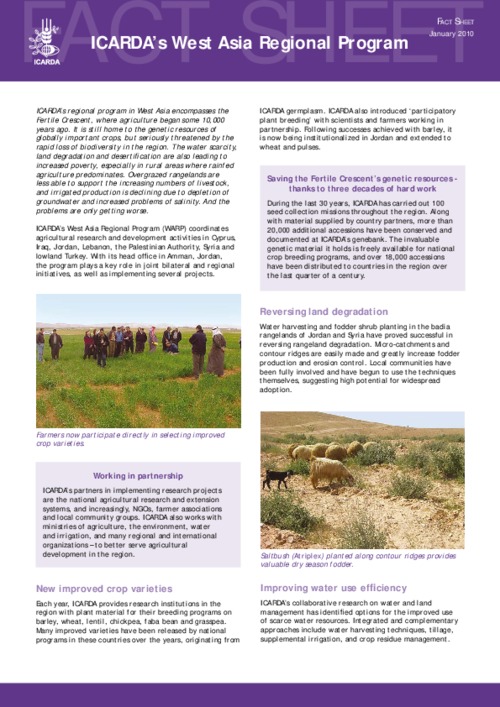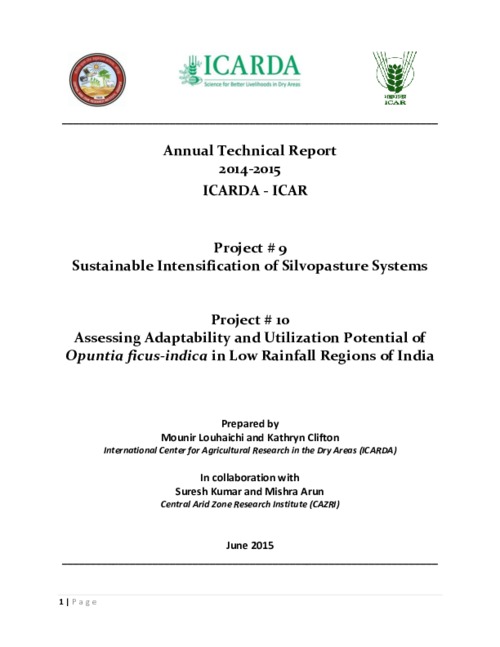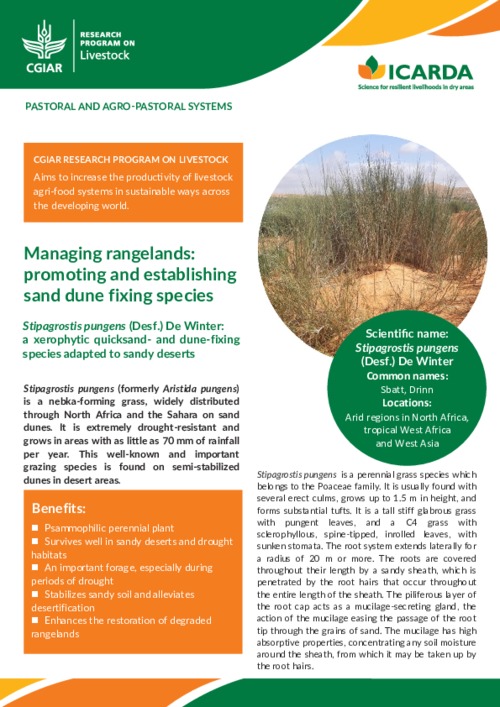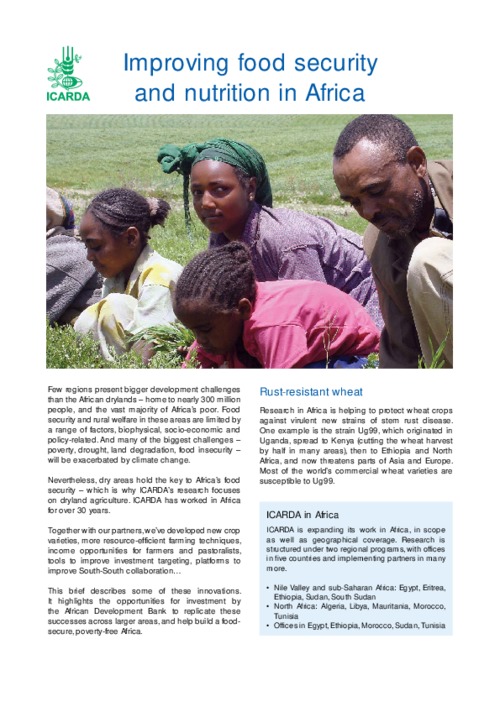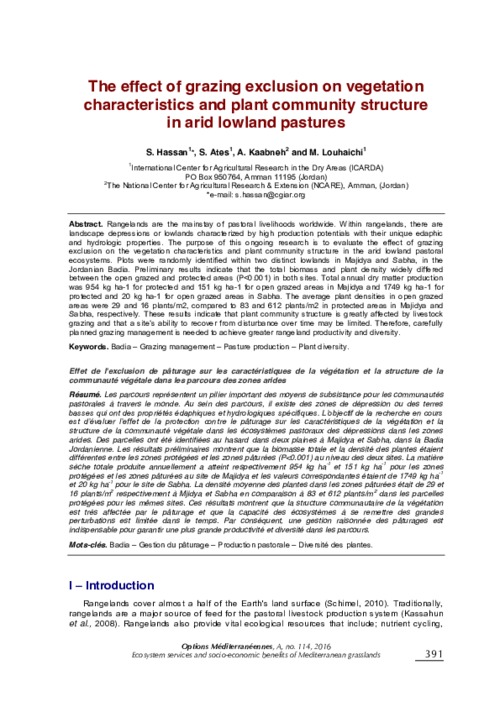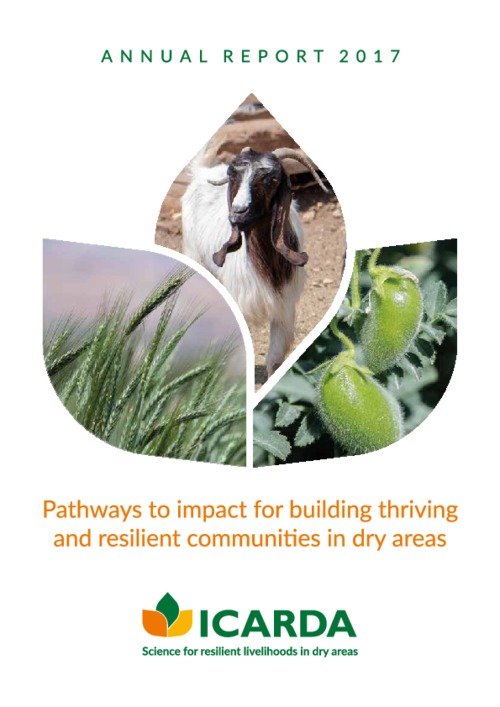ICARDA's West Asia Regional Program
ICARDA’s West Asia Regional Program (WARP) coordinates agricultural research and development activities in Cyprus, Iraq, Jordan, Lebanon, the Palestinian Authority, Syria and lowland Turkey. With its head office in Amman, Jordan, the program plays a key role in joint bilateral and regional initiatives, as well as implementing several projects.

